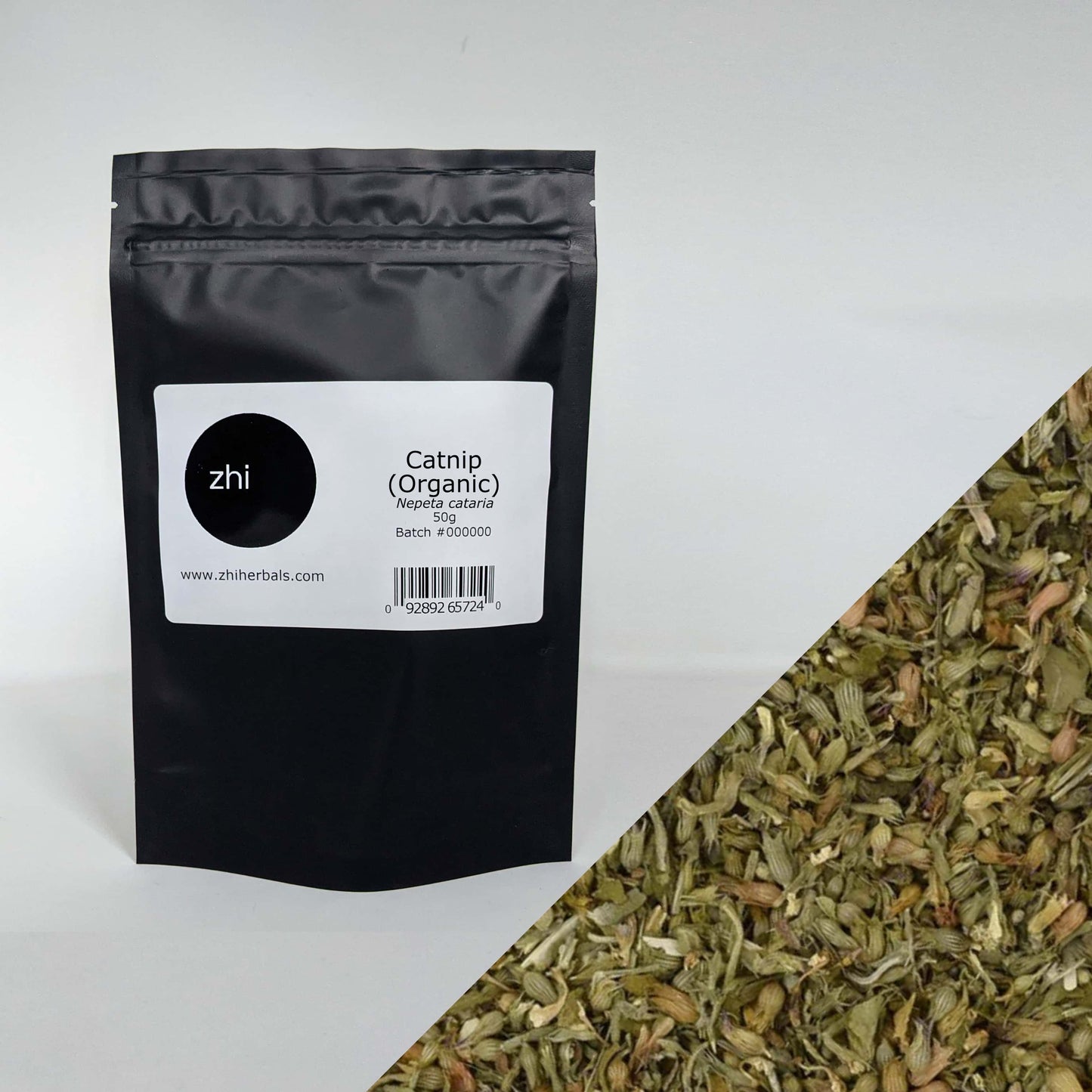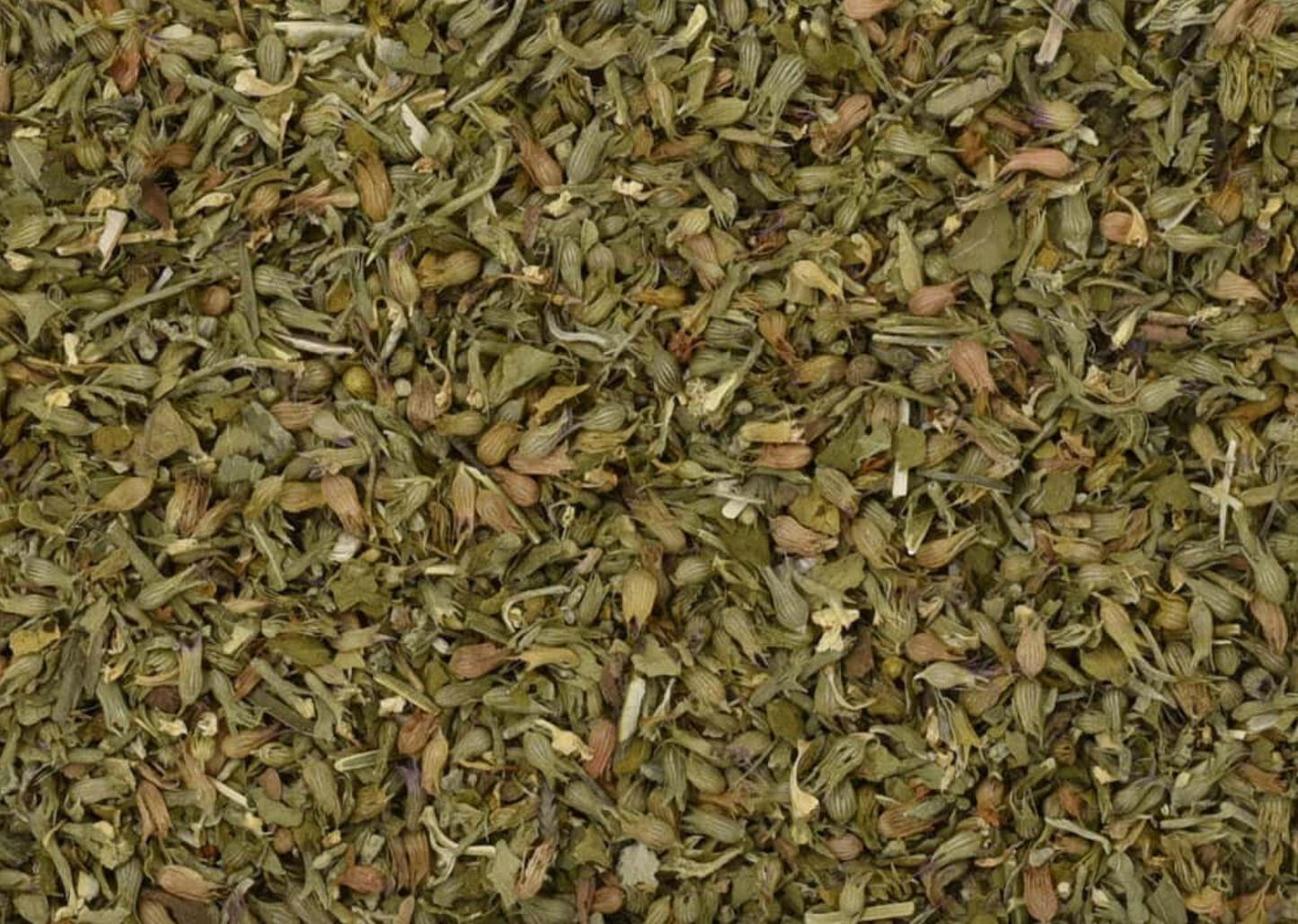Zhi Herbals
Catnip (Organic)
Catnip (Organic)
Couldn't load pickup availability
Common Name
Catnip, Catmint, Jia Jing Jie, Catsup, Cat’s Wort, Field Balm
Latin Name
Nepeta cataria
Origin
United States
What Is Catnip?
Catnip is a warming, soothing, and digestion enhancing herb that has been historically used in European and First Nations healing practices. Before the introduction of black tea in England, catnip was often used as a flavorful daily beverage.
When taken internally by humans, catnip works well both on its own and when combined with other herbs. Catnip works especially well when combined with ginger, which can enhance its effects.
Catnip leaves are a silvery-green color, and it is a popular herb amongst home gardeners.
How to Use Catnip (Common Uses)
Catnip can be taken internally as a powder, tea, in capsules, and as an extract. Catnip tea is a gentle remedy, and is safe to use with babies and children in small amounts. Due to the volatile oils present in catnip, we do not recommend boiling this herb. Catnip can be smoked, and can be found as an ingredient in some of our smoking blend recipes. Historically, catnip leaf has been used as a seasoning ingredient in some types of French cuisine.
As the name suggests, catnip is also a popular herb for cats, and can be given as a loose dried herb, used as a filling for cat toys, or prepared as a tea for your cat.
Medicinal Uses and Benefits of Catnip
Beyond pleasing cats, catnip has many applications. When brewed as tea, catnip can help soothe an upset stomach, relieve flatulence, and reduce bloating. Catnip has antispasmodic properties, and the natural compounds found within it can help to relax muscles, including those of the digestive tract, making it a gentle choice for easing cramps and spasms.
Catnip has mild sedative properties that can help alleviate anxiety and stress. It may be used by those who are experiencing restlessness or insomnia, and is a key ingredient in our Relaxing Tea Blend. The nepetalactone in catnip is responsible for many of its calming effects on the human body.
Catnip can also be used to help dispel fevers. It acts as a diaphoretic, encouraging sweating, without raising body temperature.
Catnip has antioxidant, antibacterial, and antifungal benefits. The strong smell of catnip can also be used to repel insects, including mosquitoes.
When given to children as a remedy for fevers, catnip is often combined with elderflower and/or peppermint.
For adults who tend to experience stress in the form of digestive disturbances, catnip is often taken in combination with chamomile and hops.
Active Constituents in Catnip
Nepetalactone, caryophyllene, citronellal, geranial, thymol.
Share


Wonderful products, fast shipping and very happy to gave found your website!!!


